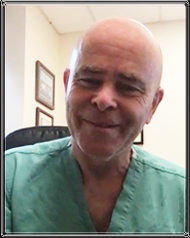
Timothy Woodford
As I prepare for my annual canoe trip, I marvel at the intelligence and ingenuity of the people who create maps, without which I would surely disappear into a portage never to be seen again.
Primary care transformation also needs a map.
Primary care is the name we give the health services that meet our day-to-day needs; it is typically our first point of contact in the health system, which includes family doctors and nurse practitioners. The primary care system across Canada has been under tremendous strain, and it needs an overhaul, not a quick fix.
Thankfully, a new ‘map’ has been created to address the challenges – and our policy makers and politicians need to take heed.
The recently released OurCare final report from Dr. Tara Kiran and team was created with input from a survey of over 9,000 Canadians, along with focus groups and roundtables from across five provinces; these are Canadians who reflect the patient populations doctors, like myself, serve. Their valuable input has been distilled to create an amazing roadmap — the OurCare Standards.
The Standards are made up of six guiding principles to help us navigate the deep woods and confusing landscape of primary care. They are designed to empower our policymakers to improve primary care access, quality and equity. Now we need action.
I have had the wonderful opportunity to train and practice as a physician for almost 44 years. I started and spent much of my career as a general practitioner (GP) and am proud to be called a family doctor. During my career, I have had many wonderful role models, but it’s not just physician mentors who have shaped who I am as a physician and as a person.
Some of the most important examples in my life have come from individuals not connected to the medical field at all. Many of those people I have had the privilege of calling my patients.
Dr. Kiran and her team have gone to these same people, using their life experiences, ingenuity, intelligence and insights to shape the OurCare Standards. The roadmap is a powerful message from the people we doctors have the privilege to serve.
The Standards stress the importance of an ongoing relationship with a primary care provider who is part of a publicly funded health care team; the need for timely and culturally appropriate access to this team; that the team is part of a primary care system connected to community resources; and the need for a team that is accountable to the community it serves.
For much of my career I was fortunate to work with colleagues and community leaders who shared a common interest in providing for the health care needs of the community in which we lived. Over the years, through health care reform, community input and local decision-making has been removed. Communication has been mostly one way. Budgets have been pinched.
Communities have floundered.
Family doctors and family medicine have suffered under a burden of increased complexity, diminishing support (both clinical and administrative) and increased expectations (system and patients). The ethos of working with like-minded colleagues to serve the communities in which we work and live, principles inherent in family medicine, has become more difficult to meet. In many cases, it has become impossible.
Yet I have been buoyed by groups of family doctors who have bent under the burden but not been broken. I have been buoyed by the belief that many family doctors share — that we can do better.
Belief in ‘we can do better’ and trying to live up to that ethos, in today’s world, has contributed to the burnout of many of my colleagues. Many of us have gone into self-preservation mode.
Being lost in the woods is not a pleasant experience. Being lost with others, though, with a common plan, can be comforting. The OurCare Standards, a map drawn by our patients, provides us with a plan — guiding principles that will help lead us back to ‘doing better.’
Building accountability to the communities we serve will make our health care system stronger. Being part of something bigger than ourselves, being part of ‘doing better’ is the medicine we all need.
I hope you will read the report. I hope health care decision makers will read the report. I hope these standards will be adopted as the destination on the map for primary care in Canada.
Dr. Timothy Woodford has worked as a family doctor in rural Nova Scotia for more than 38 years and has, at different times throughout his career, provided office, ER, hospital, obstetrical, palliative care and nursing home care.

